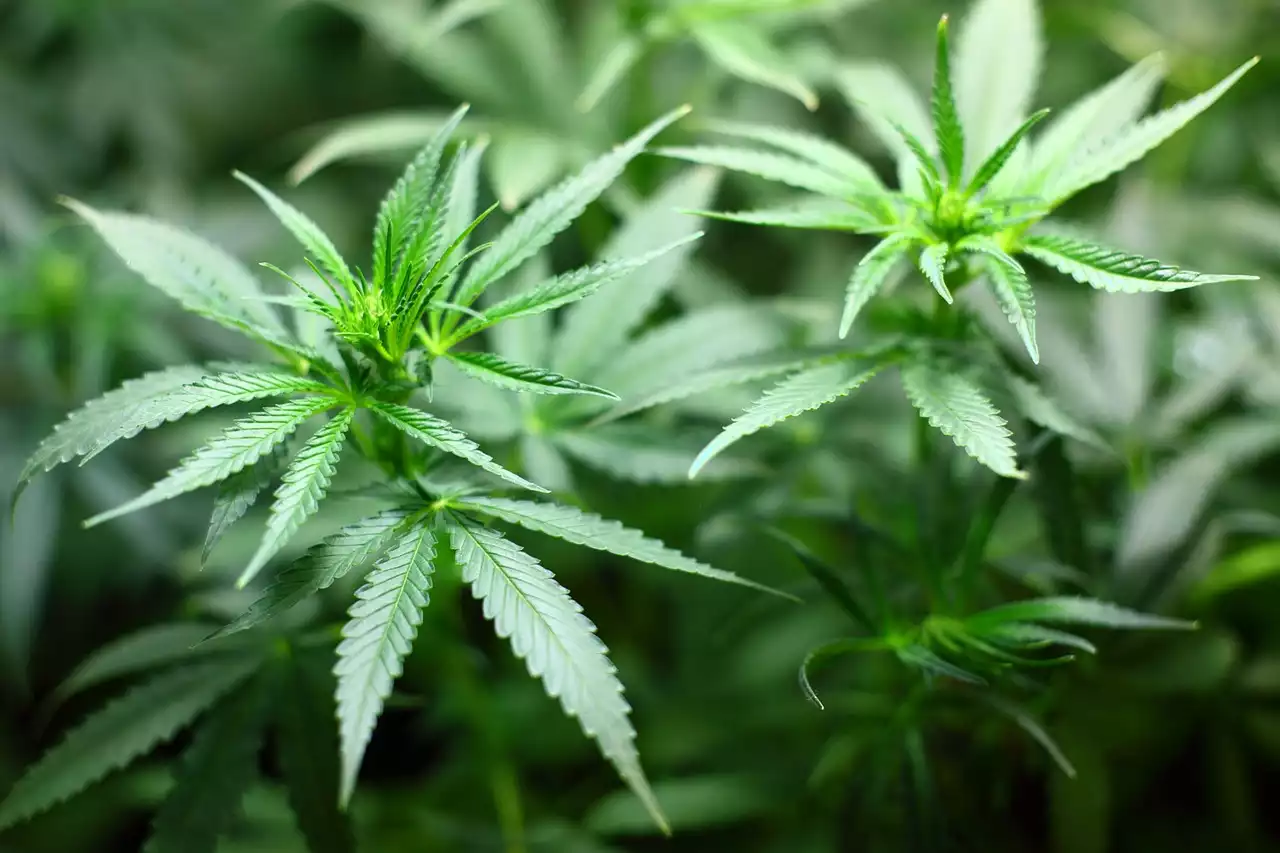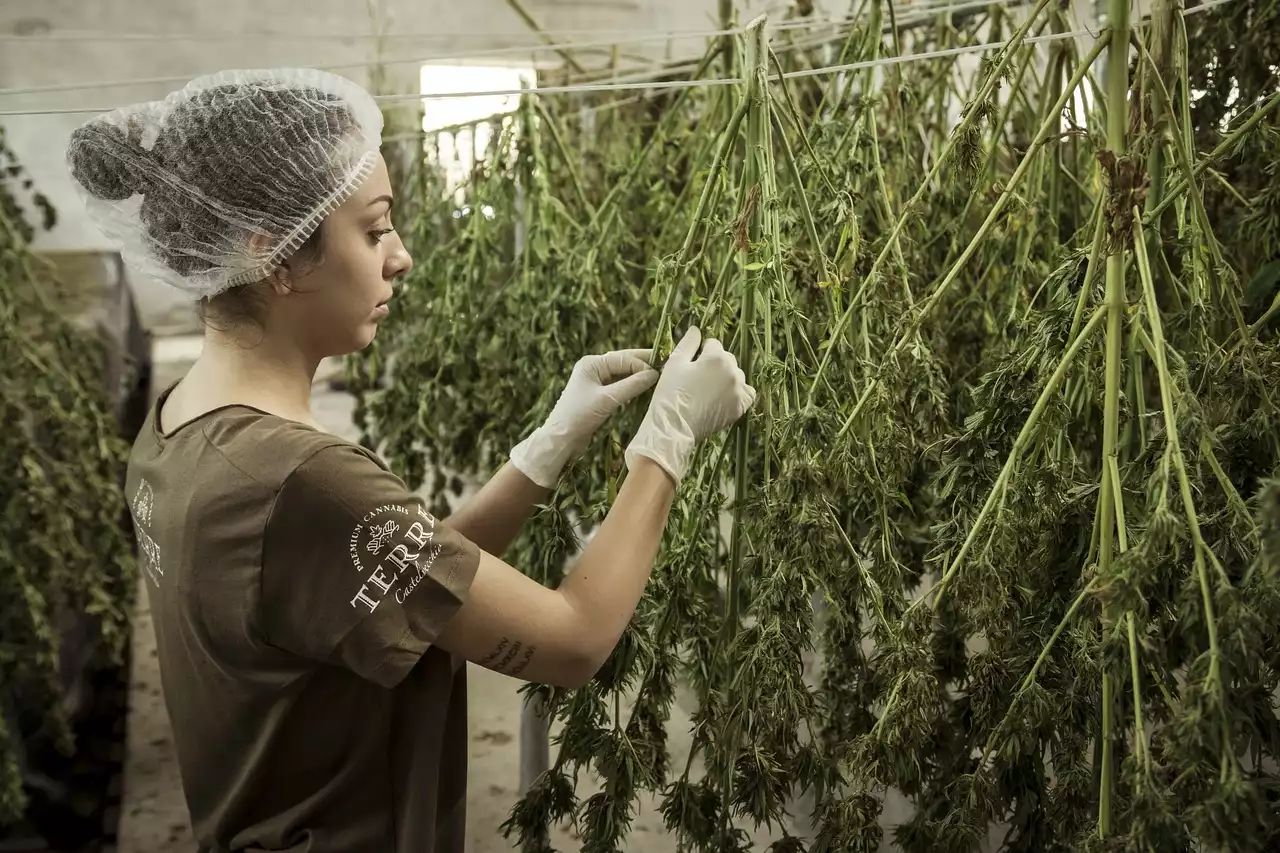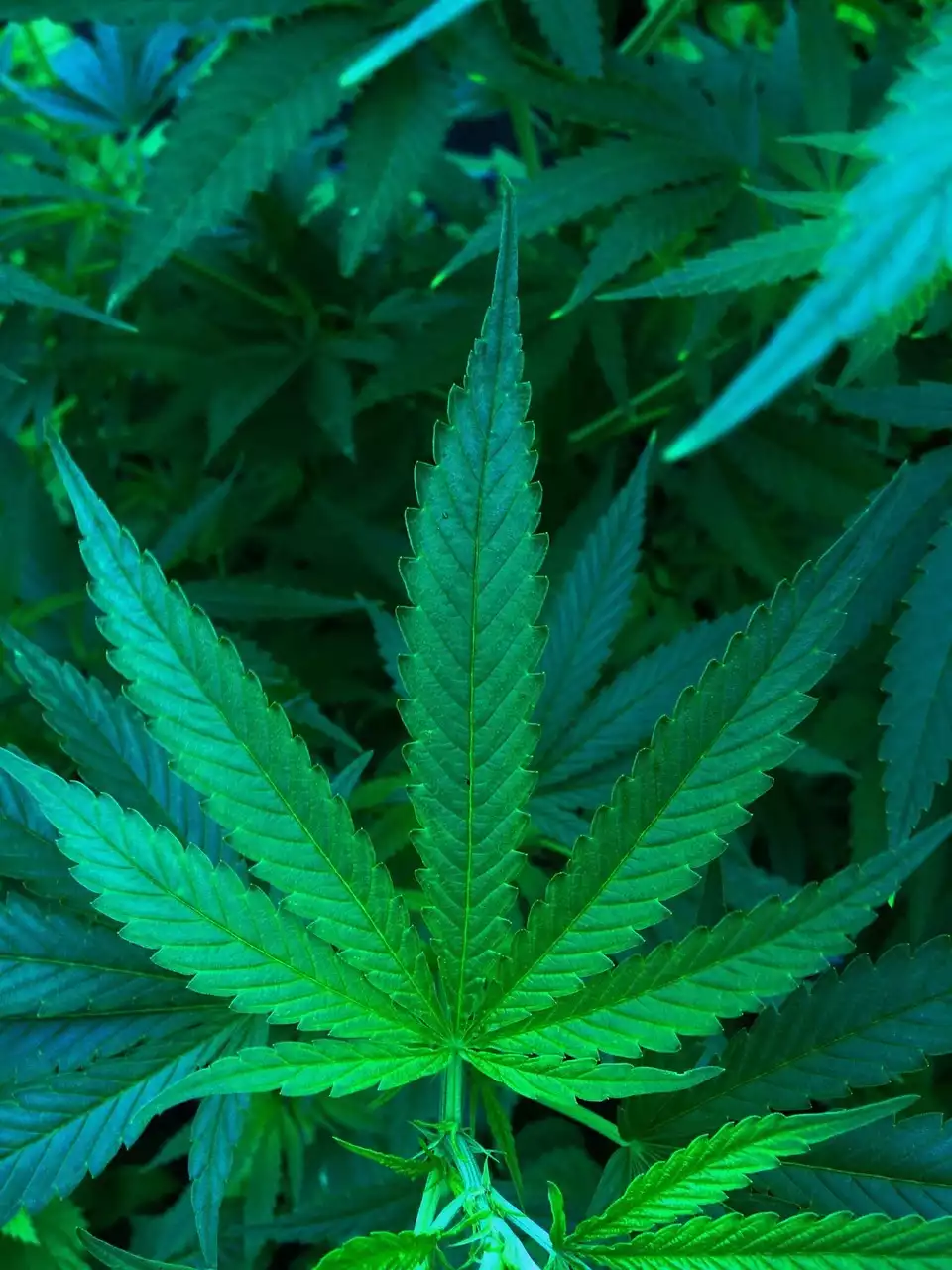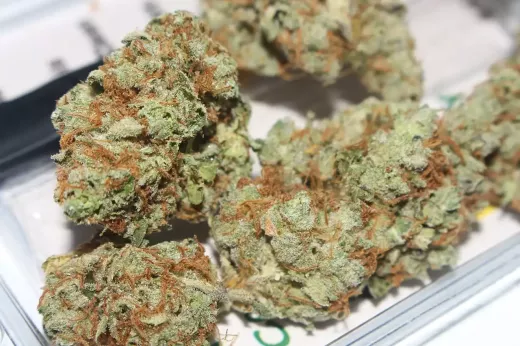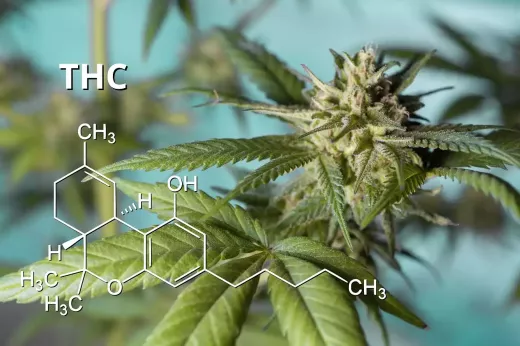Introduction
The wellness industry is experiencing a remarkable shift as cannabis gains momentum and popularity among health enthusiasts seeking natural alternatives. From relaxation to pain management, cannabis has emerged as a powerful ally in enhancing overall well-being. This growing trend is revolutionizing the wellness landscape, with consumers increasingly turning to cannabis-infused products for its potential therapeutic benefits.
With its versatile properties, cannabis is finding its way into various wellness practices, including skincare, nutrition, and fitness. As more research highlights the potential health benefits of cannabis, the stigma surrounding its use is slowly dissipating, paving the way for a more open and accepting approach. This new wave of acceptance has led to the emergence of cannabis-inspired wellness brands and products, catering to a demand that shows no signs of slowing down.
The cannabis revolution in the wellness industry is fueling conversations around self-care, mental health, and holistic healing. As consumers seek more natural solutions for their well-being, cannabis is carving a niche for itself, offering a breath of fresh air in an industry long dominated by synthetic products. This article explores the skyrocketing popularity of cannabis in the wellness industry and delves into the potential of this herbaceous plant to transform our approach to holistic wellness.
The benefits of incorporating cannabis into wellness routines
Cannabis offers a range of benefits when incorporated into wellness routines. One of the main advantages is its ability to promote relaxation and reduce stress. The cannabinoids found in cannabis interact with our endocannabinoid system, which plays a crucial role in regulating our mood and stress response. By activating these receptors, cannabis can help to calm the mind and promote a sense of tranquility.
Furthermore, cannabis has shown promise in pain management. Many individuals turn to cannabis as a natural alternative to traditional pain medications. The anti-inflammatory properties of cannabinoids can help reduce pain and inflammation, making it a valuable tool for those suffering from chronic pain conditions.
In addition to relaxation and pain management, cannabis has also been found to improve sleep quality. Insomnia is a common issue that affects many individuals, and cannabis can offer a natural solution. Certain strains of cannabis, such as indica varieties, are known for their sedative effects, making them an excellent choice for those struggling with sleep disorders.
Overall, incorporating cannabis into wellness routines can provide a variety of benefits, including relaxation, pain management, and improved sleep quality. As more individuals discover these advantages, the demand for cannabis-infused wellness products continues to rise.
The legal status of cannabis in different countries
The legal status of cannabis varies greatly across different countries. While some nations have embraced cannabis for both recreational and medical purposes, others maintain strict regulations and criminalize its use. Understanding the legal landscape is crucial for both consumers and businesses operating in the wellness industry.
In countries like Canada, Uruguay, and several states in the United States, cannabis has been legalized for recreational use. This has opened up a wide range of opportunities for businesses to develop cannabis-infused products specifically catered to the wellness industry. From CBD-infused skincare to cannabis-infused edibles, consumers in these regions have access to a diverse array of options.
On the other hand, in countries where cannabis is still illegal, such as many parts of Asia and Africa, consumers face significant barriers in accessing cannabis-infused wellness products. However, the tide is slowly turning, and some nations are starting to explore the potential benefits of cannabis for medical purposes. As public opinion shifts, it is likely that the legal status of cannabis will continue to evolve in the coming years.
It is important for consumers to stay informed about the legal status of cannabis in their country or region. This ensures that they are making responsible choices and are aware of any potential legal consequences associated with the use of cannabis-infused wellness products.
Popular cannabis products in the wellness industry
The wellness industry has seen a surge in the popularity of cannabis-infused products. From tinctures and oils to edibles and topicals, there is a wide range of options available for consumers looking to incorporate cannabis into their wellness routines.
One of the most popular cannabis products in the wellness industry is CBD oil. CBD, or cannabidiol, is a non-psychoactive compound found in cannabis that offers various potential health benefits. CBD oil can be consumed orally, added to food and beverages, or used topically. It is known for its anti-inflammatory properties, making it a sought-after ingredient in skincare products.
Another popular cannabis product is THC-infused edibles. These include gummies, chocolates, and baked goods, among others. Edibles provide a discreet and convenient way to consume cannabis, and their effects can be long-lasting. They offer a different experience compared to smoking or vaping cannabis, making them a preferred choice for those who want to avoid the potential risks associated with inhalation.
Topicals, such as creams and lotions, are also gaining popularity in the wellness industry. Cannabis-infused topicals are designed to be applied directly to the skin, providing localized relief for pain, inflammation, and skin conditions. They are non-psychoactive, meaning they do not produce a "high" effect, making them suitable for those who want to experience the potential therapeutic benefits of cannabis without any psychoactive effects.
These are just a few examples of the diverse range of cannabis products available in the wellness industry. As consumer demand continues to grow, we can expect to see even more innovative cannabis-infused products hitting the market.
How cannabis can be used for relaxation and stress relief
In today's fast-paced world, relaxation and stress relief are essential for maintaining overall well-being. Cannabis has been used for centuries as a tool for relaxation, and its potential in this area is being rediscovered in the wellness industry.
Cannabis contains compounds called cannabinoids, which interact with receptors in our endocannabinoid system. This system plays a crucial role in regulating our mood, stress response, and overall emotional well-being. By activating these receptors, cannabis can help promote a sense of calm and relaxation.
One cannabinoid in particular, CBD, has gained significant attention for its potential anxiolytic properties. CBD has been studied for its potential to reduce anxiety and stress, making it a popular choice for those seeking natural alternatives to manage their mental health.
Additionally, certain strains of cannabis, such as indica varieties, are known for their relaxing effects. These strains typically have higher levels of compounds like THC, which can induce a state of relaxation and promote a sense of tranquility. Many individuals find these strains helpful for winding down after a long day or as a tool for relaxation before bed.
It is important to note that the effects of cannabis can vary from person to person, and finding the right strain and dosage is a personal journey. Consulting with a healthcare professional or knowledgeable budtender can help individuals navigate the wide range of options available and find the best cannabis product for their relaxation and stress relief needs.
The potential health benefits of cannabis for pain management
Pain management is a significant concern for many individuals seeking natural alternatives to traditional medications. Cannabis has shown promise in this area, with research suggesting that it may offer potential benefits for pain relief.
Cannabinoids found in cannabis, such as THC and CBD, have been found to interact with the body's endocannabinoid system, which plays a role in pain modulation. By activating these receptors, cannabis can help reduce pain and inflammation, offering relief for those suffering from chronic pain conditions.
One study published in the Journal of Pain found that cannabis was effective in reducing neuropathic pain, which is often challenging to treat with traditional medications. Another study published in the European Journal of Pain reported that CBD applied topically could reduce pain and inflammation in rats with arthritis.
These findings, along with numerous anecdotal reports, suggest that cannabis may hold promise as a natural alternative for pain management. However, more research is needed to fully understand the mechanisms and potential benefits of cannabis in this area.
It is important for individuals considering cannabis for pain management to consult with a healthcare professional, as they can provide guidance on dosage, strain selection, and potential interactions with other medications. They can also help individuals navigate any legal considerations associated with the use of cannabis for pain relief.
Exploring the use of cannabis in skincare and beauty products
The wellness industry has witnessed a surge in the popularity of cannabis-infused skincare and beauty products. From serums and creams to bath bombs and face masks, cannabis is revolutionizing the way we approach skincare and beauty.
Cannabinoids, such as CBD, have been found to have anti-inflammatory and antioxidant properties, making them valuable ingredients in skincare products. These properties can help soothe irritated skin, reduce redness, and promote a healthy complexion. Additionally, CBD has been shown to regulate sebum production, making it beneficial for those with oily or acne-prone skin.
Cannabis-infused skincare and beauty products can also offer additional therapeutic benefits. The act of applying these products can be a form of self-care and relaxation, allowing individuals to take a moment for themselves and indulge in a little pampering. This holistic approach to skincare aligns with the broader wellness trend, where individuals are seeking products that not only enhance their physical appearance but also promote their overall well-being.
It is important to note that not all cannabis-infused skincare and beauty products are created equal. As with any skincare product, it is essential to look for high-quality ingredients and reputable brands. Reading labels, researching brands, and seeking recommendations from trusted sources can help individuals make informed choices when incorporating cannabis into their skincare and beauty routines.
The role of cannabis in alternative medicine and holistic healing
Cannabis has a long history of use in alternative medicine and holistic healing practices. Traditional cultures have utilized cannabis for various purposes, including spiritual rituals, pain relief, and overall wellness.
In recent years, there has been a resurgence of interest in cannabis as a tool for holistic healing. This is in part due to the growing body of research highlighting the potential health benefits of cannabinoids found in cannabis.
One area where cannabis shows promise is in the treatment of certain neurological disorders, such as epilepsy. CBD, in particular, has been studied extensively for its potential anticonvulsant properties. The FDA has even approved a CBD-based medication for the treatment of certain types of epilepsy.
Cannabis has also been explored as a potential treatment for mental health conditions, such as anxiety and depression. While more research is needed in this area, preliminary studies suggest that cannabinoids may have anxiolytic and antidepressant effects.
Additionally, cannabis has been used by individuals seeking spiritual and introspective experiences. Some cultures consider cannabis as a sacred plant, using it in rituals and ceremonies to enhance their connection to the divine or to gain insight into their own consciousness.
As the wellness industry continues to grow, the role of cannabis in alternative medicine and holistic healing is likely to expand. More research is needed to fully understand the potential benefits and risks associated with cannabis in these contexts. However, the increasing acceptance of cannabis in mainstream society is opening up opportunities for individuals to explore its potential as a tool for holistic healing.
Safety considerations and responsible use of cannabis in wellness
While cannabis offers potential benefits for wellness, it is important to approach its use responsibly and with consideration for safety.
One of the main safety considerations is dosage. Cannabis affects individuals differently, and the optimal dosage can vary from person to person. Starting with a low dose and gradually increasing it allows individuals to gauge their tolerance and find the right balance.
Another important aspect is understanding the composition of cannabis products. Different strains have varying levels of cannabinoids, such as THC and CBD, which can produce different effects. It is important to read labels and choose products that align with desired outcomes.
Additionally, it is crucial to be aware of any potential interactions with medications or medical conditions. Cannabis can interact with certain medications, and individuals should consult with a healthcare professional before incorporating cannabis into their wellness routine.
Lastly, responsible use of cannabis includes respecting legal regulations and guidelines. Understanding the legal status of cannabis in one's country or region is essential to ensure compliance and avoid any legal consequences.
By approaching cannabis with mindfulness and responsibility, individuals can maximize its potential benefits while minimizing any potential risks.
Conclusion: The future of cannabis in the wellness industry
The growing trend of cannabis in the wellness industry is reshaping the way we approach holistic wellness. From relaxation to pain management, cannabis offers a range of potential benefits that are attracting health enthusiasts seeking natural alternatives.
As the stigma surrounding cannabis dissipates and research continues to highlight its potential health benefits, we can expect to see even more innovative cannabis-infused products hitting the market. From skincare and beauty to nutrition and fitness, cannabis is finding its way into various aspects of the wellness industry.
However, it is important to approach the use of cannabis responsibly and with consideration for safety. Understanding the legal status, dosage, and potential interactions is crucial for individuals looking to incorporate cannabis into their wellness routines.
As the wellness industry continues to evolve, the role of cannabis is likely to expand. With its versatile properties and potential therapeutic benefits, cannabis has the potential to transform our approach to holistic wellness, offering a natural and sustainable alternative to synthetic products.
The future of cannabis in the wellness industry is bright, and as more individuals discover its potential, it is poised to become an integral part of our well-being journey.
